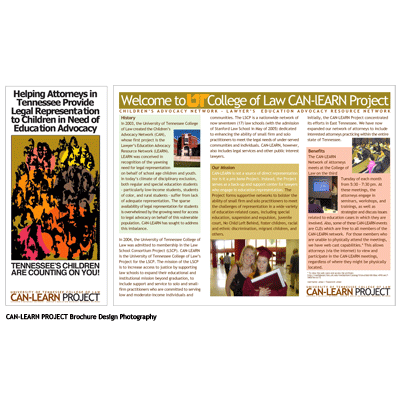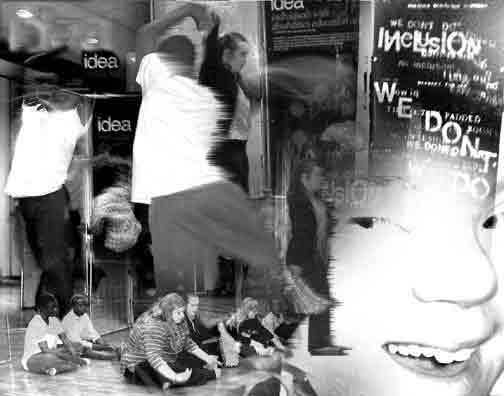
Barbara and Her Husband Wayne are the Co Directors
|
 |
Barbara served as staff attorney for the University of Tennessee, College of Law, CAN-LEARN Project (Children’s Advocacy Network-Lawyers Education Advocacy Resource Network) from 2006-2009. The granted initiative addressed the sparse availability of legal representation for school-aged children and sought to include regular and special education, low-income, rural and students of color in Tennessee. |
 |
The purpose of the "IDEA Inclusion Project" was to produce a creative performance and multi media display to educate and celebrate diversity and inclusion especially regarding persons with disabilities in regard to the mandates of the federal statute, IDEA. The arts were used as a vehicle to inform the general public about the right of children with disabilities to receive an inclusive "Free and Appropriate Public Education" (FAPE). We also wanted to provide a forum for the educational experiences of persons with disabilities to be seen and heard. For individuals with disabilities to be prepared to live and work independently, advocates and families have to focus toward that goal early on. That means that basic goals must be addressed throughout the early years to prepare for a transition into an independent adulthood that includes optimal quality of life. Clear focusing in early education and the need to stay on track are paramount in the achievement of future goals. The aforementioned points while applying to any young person become so much more crucial when considering the future of a person with a disability. The ultimate goal is to make everyone aware of the right of people with disabilities to an inclusive, free, and appropriate education so that all may know children's rights through the IDEA law and especially parents may implement them for their children with disabilities. |
 |
|
|
| T |